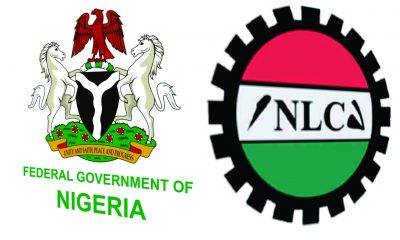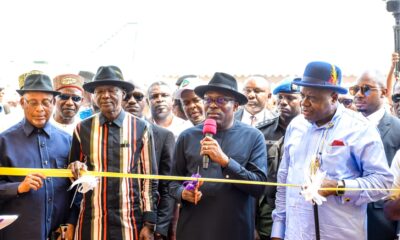Featured
CPI 2020: Nigeria Ranks 149 Out Of 183 Countries
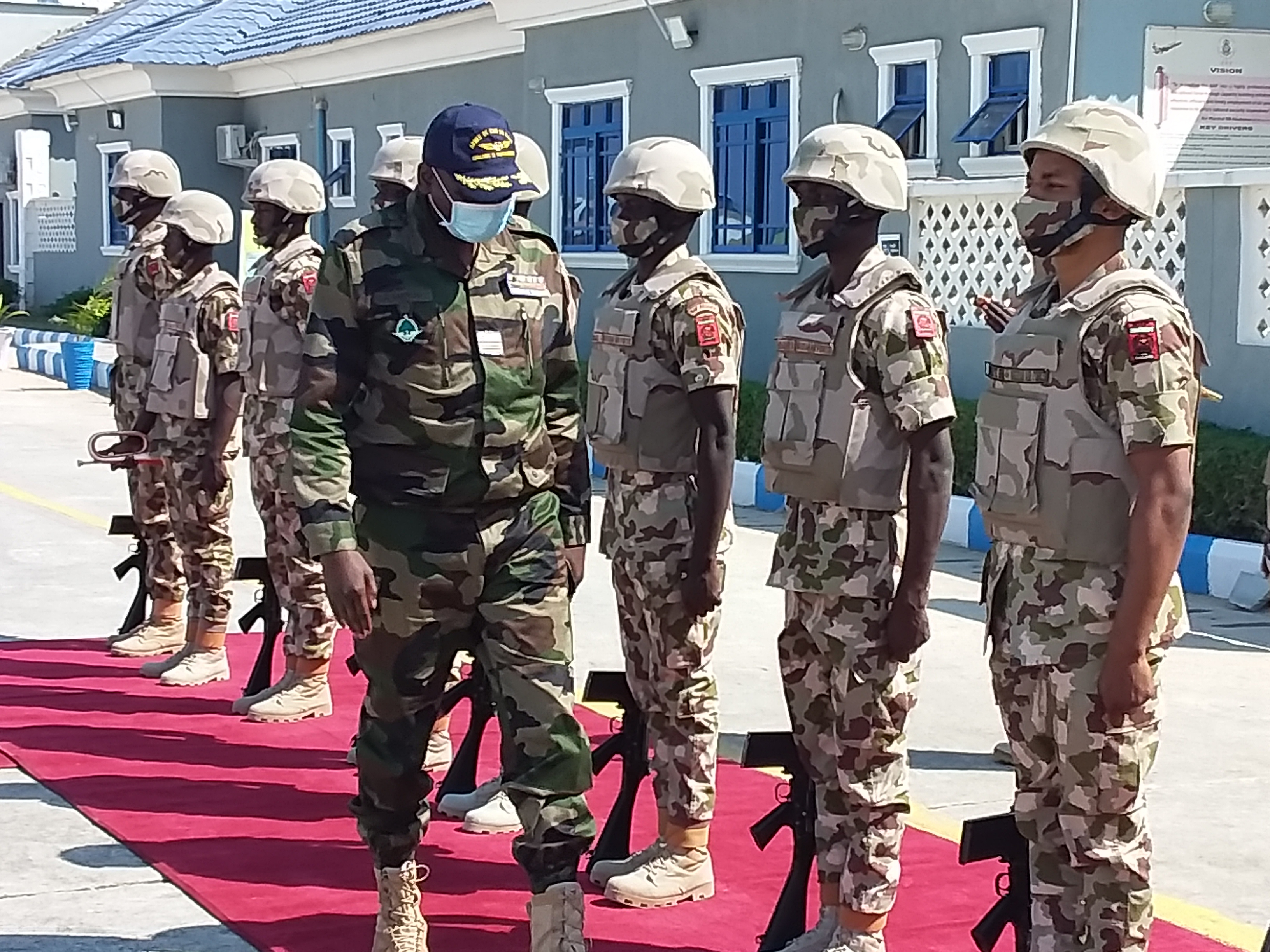
As economic recession continues to bite harder and inflation skyrocketing, Transparency International (TI), yesterday, disclosed that Nigeria ranked 149 on Corruption Perception Index 2020 out of 183 countries.
This was contained in a publication by the Civil Society Legislative Advocacy Centre (CISLAC), and made available to newsmen, which indicated that Nigeria, again, recorded a decline in the CPI in 2020.
Nigeria dropped to 149 on Transparency International’s 2020 Corruption Perception Index to become the second most corrupt country in West Africa, scoring 25 out of 100 points.
This indicates that corruption in the country has worsened as it is the worst ranking Nigeria has received in two years.
Nigeria follows Guinea Bissau who finished on 165 as the most corrupt nation in the sub-region, scoring 19 points.
Fellow African countries, Somalia and South Sudan, are perceived as the most corrupt nations on earth.
Of the 49 countries assessed in Sub-Saharan Africa, only 12 are more corrupt than Nigeria.
They are Zimbabwe, Chad, Eritrea, Burundi, Congo, Guinea Bissau, Democratic Republic of Congo, Libya, Equatorial Guinea, Sudan, Somalia and South Sudan.
According to the jointly signed report by CISLAC/TI Nigeria, Centre for Democracy and Development (CDD), and BudgIT, Nigeria scored 25 out of 100 points in the 2020 CPI, falling back by one point compared to last year.
The report also indicated that the CPI aggregated data from eight different sources that provided perceptions by Nigeria’s business community and country experts on the level of corruption in the public sector.
While the index does not show specific incidences of corruption, “it is an indication of the perception of the Nigerian public about the state of corruption in the country. The index is completely impartial, objective and globally well respected.”
The report reads in part, “The 2020 Corruption Perceptions Index (CPI) released globally by Transparency International (TI) today shows that Nigeria yet again, records a decline in the CPI in 2020.
“Published exclusively in Nigeria by the Civil Society Legislative Advocacy Centre (CISLAC), the National Chapter of TI, the index reveals that Nigeria scored 25 out of 100 points in the 2020 CPI, falling back by one point compared to last year. In the country comparison for this year, Nigeria ranks 149 out of 183 countries -three places down compared to 2019 results.
“The CPI aggregates data from eight different sources that provide perceptions by Nigeria’s business community and country experts on the level of corruption in the public sector. While the index does not show specific incidences of corruption, it is an indication of the perception of the Nigerian public about the state of corruption in the country. The index is completely impartial, objective, and globally well respected.
“This result is coming at the heels of numerous challenges facing the country ranging from the Covid-19 pandemic, insecurity, high unemployment, and a sharp increase in government borrowing, amongst others.
“While releasing its report on “Rising to the Challenge: Nigeria’s COVID Response” in December, 2020, the World Bank warned that “In the next three years, an average Nigerian could see a reversal of decades of economic growth and the country could enter its deepest recession since the 1980s.”
The report further pointed out that, “Nigeria’s CPI score is just another reminder of the need for a fast, transparent, and robust response to the challenges posed by corruption to Nigeria.
“It is worrying that despite the numerous efforts by state actors on the war against corruption, Nigeria is still perceived by citizens and members of the international community as being corrupt. CISLAC/TI is forced to ask why the results do not commensurate with the efforts?
However, the report made it clear that “Despite the fact that CISLAC and Nigerian partners do not collect the CPI data as this is done by independent, reputable organisations, we and other well-meaning citizens have experienced push-back from various governments and their supporters when the CPI results and other indices turn unfavourable. Some of these push backs include labelling us ‘unpatriotic citizens’. In some instances, physical attacks were experienced.”
The report also made reference to an independent think tank organization, the Council on Foreign Relations (CFR) that Nigeria witnessed a total of 2,860 kidnappings in 2020, showing the appalling insecurity challenge Nigeria is being subjected to.
“According to the Council on Foreign Relations (CFR) which is an independent think tank organization, Nigeria witnessed a total of 2,860 kidnappings in 2020 which was up from 1,386 in 2019”, it pointed.
It also added that “The picture is further gloomy when taking into consideration the Unemployment Data for the second quarter of 2020 released by the National Bureau of Statistics (NBS).
“This survey by the NBS which is the government’s statistical agency shows that one in two Nigerian is either unemployed (27.1%) or underemployed (28.6%). Each of these challenges can be linked to corruption and mismanagement of public resources, which further exacerbates the economic and health impact of the terrible global pandemic.”
According to the report, CISLAC/TI and partners pointed out that there are worrisome factors that would continue to hamper the fight against corruption, and described them as a list of key weaknesses which include the absence of transparency in the Covid-19 pandemic response; nepotism in the public service appointments and promotions; lack of adequate anti-corruption legal frameworks and interference by politicians in the operation of law enforcement agencies; and prevalence of bribery and extortion in the Nigerian Police; and security sector corruption.
“To explain why Nigeria may not have improved in the fight against corruption. Although there is a various extent of the below-mentioned factors on the unfavourable ranking this year, we feel that these areas require immediate improvement for the sake of the well-being of ordinary Nigerians.
“In the past year, we witnessed nepotism and favouritism in the appointment and promotion of some public officers. For example, all Nigerians remember the controversy which trailed the decision of the National Judicial Council (NJC) when at least, eight of the 33 judges recommended for appointment by the NJC were either children or relatives of current or retired Justices of the Supreme or Appeal Courts.
“The Nigerian Ministry of Foreign Affairs in itself is not an exception with allegations of individuals promoted on the basis of their relationship and other affiliations as against merit and other criteria stated in the rule books. Reports around the commercialization of employment into various institutions, including admission into various tertiary educational institutions put the nation in bad light. The extortion for the acquisition of services like healthcare, passports renewal and obtaining of visas creates a negative perception of corruption in Nigeria.
“Prevalence of bribery and extortion in the Nigerian Police; The year 2020 witnessed the #EndSARS protests which saw young people across the nation demanding an end to police brutality and corruption. A factor that led to this protest was widespread bribery and extortion by law enforcement officials especially the police.
“The first and second national corruption surveys conducted by the United Nations Office on Drugs and Crime (UNODC) in partnership with the government’s National Bureau of Statistics (NBS), and released in 2017 and 2019 both showed the Nigerian Police is the institution with the highest prevalence of bribery amongst the institutions measured.
“While there have been commendable efforts by the Police Complaints Response Unit (CRU) in reducing police abuses, there is a need to scale up the efforts of the unit to meet the demands of citizens as contained in the Police Act 2020.
“Security sector corruption: From violent extremism and insurgency to piracy, kidnapping for ransom, attacks on oil infrastructure, drug trafficking, and organized crime, Nigeria faces a host of complex security challenges. These threats typically involve irregular forces and are largely societally based.
“They are most prevalent and persistent in marginalized areas where communities feel high levels of distrust toward the government—often built up over many years. At their root, these security challenges are symptoms of larger failures in governance.
“As many of Nigeria’s security threats are domestic in nature, the Nigeria Police Force (NPF) is often the primary security interface with the public. However, low levels of public trust in the police inhibit the cooperation needed to be effective against these societally based threats.
“Nigeria’s security system is also perceived to be politicized. Leaders are often appointed based on their political allegiances rather than on their experience or capabilities in law enforcement. As a result, the quality of leadership at the helm of affairs suffers.
“Appointees under such circumstances feel loyalty to their political patron rather than to their institutions or citizens. How and to whom the law is applied is not consistent. Norms of professionalism and ethics are weakened.
“The problem of non-meritocratic leadership is exacerbated by a command-and-control structure that is opaque, centralized, and often chaotic. Security leaders who have not earned their position lose the respect of their colleagues, who are then more likely to abandon a unit when facing an armed threat. Insufficient understanding or commitment to effectiveness among a force’s leadership often results in the neglect of training. Problems of police engagement with communities are thus perpetuated.
“The continuous opaqueness in the utilization of security votes contributes to corruption perception in the country and this process must be reformed especially when we have security agencies living and working in very poor conditions. Multiple reports of police officers protesting non-payment of allowances for election duties are now seen. The result of this is the widespread kidnappings, banditry and terrorism ravaging different parts of the country.
“Absence of transparency in the Covid-19 pandemic response; With the Covid-19 pandemic out of Nigeria’s responsibility, there has been a lack of transparency in the emergency response of the government. Coupled with the gap in coordination, the process has been fraught by the incessant flouting of procurement guidelines, hoarding of relief materials, and diversion of these materials which are then used as personal souvenirs presented to political party loyalists and close associates.
“We find it disturbing that in some cases, supplies donated by a group of well-meaning Nigerian business persons, corporate entities, development partners, and others under the Coalition Against Covid-19 (CACOVID) were left inexplicably undistributed, and in some cases rotten, by the federal and state governments. While these occurrences are not specific to Nigeria, citizens are yet to see concrete action by the anti-graft agencies on these issues.”
Meanwhile, the report called on the government and her supporters to examine the drivers behind Nigeria’s deteriorating anti-corruption image and consider actions, which will tackle systemic corruption, which it made some recommendations to salvage the situation.
“We guarantee that the perception will improve in the short term. As law-abiding citizens, CISLAC/TI and other partner organizations are willing to work with state and non-state actors on how to collectively improve Nigeria’s fight against corruption as we have always done in the past.
“To this effect, we will like to advise the government to implement these recommendations: Transparency in the utilization of Covid-19 relief funds by state and non-state actors must be ensured. The National Assembly and relevant anti-graft agencies must follow up cases of corruption in the Covid-19 response process and reports from the Auditor General’s office. The office of the Auditor-General should also be strengthened to carry out an audit of the Covid-19 relief process.
“Public servants should be appointed, appraised, and promoted on merit to reduce the level of nepotism and favouritism. Lop-sidedness in appointments increases the perception of corruption of the due process.
“The National Assembly should speed up the deliberation and passage of relevant anti-corruption related laws or amendments to strengthen the anti-corruption efforts in the interest of Nigerians. The presidency should assent to these laws once they are passed while taking into consideration the best interest of citizens.
“The government should commit to police reform by ensuring the full implementation of the Police Act 2020, support the ongoing judicial panels of inquiries and prioritize the welfare of the personnel of the Nigerian Police.
“The government should put in place a transparent monitoring framework for Security votes. The government should also ensure that these funds are channelled to security and defense agencies.
“The Federal Government should urgently constitute the National Council on Public Procurement (NCPP) to actively coordinate the activities of the Bureau of Public Procurement and give full effect to the Public Procurement Act 2007.
“The government must ensure democratic and free civic space for engagement with the citizenry and the media.
“We call on revenue-generating agencies like the Federal Inland Revenue Service, the National Ports Authority, and the Nigerian Customs Service to ensure that they improve efforts to curb extortion and bribery among their officials.
“There is also a need to operationalize the anti-corruption strategy to ensure that anti-corruption efforts are not concentrated at the federal level alone. Also, other arms of government need to be involved in the fight against corruption. It shouldn’t be left alone to the executive alone.”
Featured
We Support Rivers Workers To Feel Valued, Productive, Says Fubara …Inaugurates Bayelsa Labour House
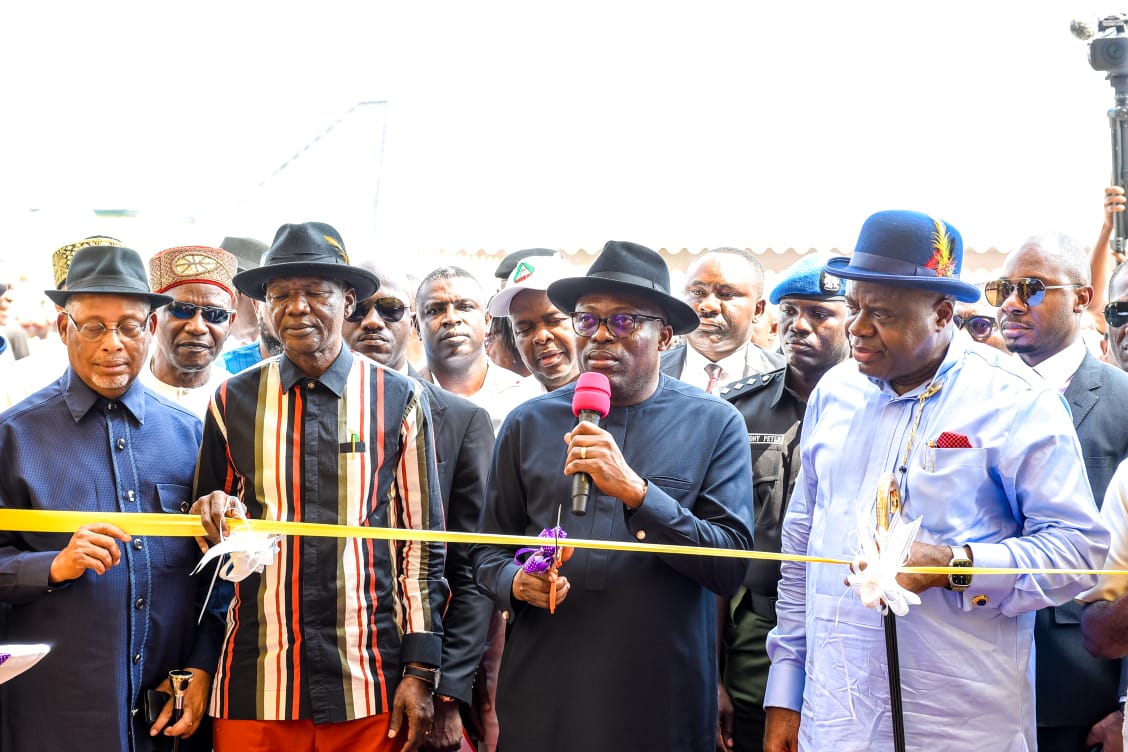
Rivers State Governor, Sir Siminalayi Fubara, has explained that in the heat of political crisis staged against his administration in 2023, he committed to improving the welfare of Rivers workers in order to have a well-motivated workforce to achieve the goals of the Rivers First mantra.
The Governor stated that the resultant industrial harmony has now become unprecedented as workers feel more valued, supported, and resolved to be more productive on an increased efficiency and profitability scale.
Governor Fubara gave the explanation while inaugurating the one-storey twin-building Labour House constructed by the administration of Governor Douye Diri, in Yanagoa City, the Bayelsa State capital, yesterday.
The Governor recalled that while en-route Abuja for a reconciliatory political meeting to find solutions to the 2023 political crisis, his mind kept drifting to what could be done to give hope and cushion the hardship faced by Rivers workers.
Governor Fubara said he made the decision, therefore, to pay Christmas bonus of N100,000 to every worker, across grade levels in December, 2023, and extended the gesture to retirees in 2024.
The Governor stated: “On the 18th of December, the year of Our Lord 2023, I was on my way to Abuja for a reconciliatory meeting, and I was thinking: what will I do for my people – my primary constituency, who are the civil servants?
“We all know that the salary is not enough during the Christmas period. I knew we had a lot of challenges at that time, and it would be difficult for me to do the 13th month.
“But, however, even if I had to do the 13th month, it would also be a cheating to the lower level workers because some of them would have less than N100,000. So, I decided that I was going to do a bonus of N100,000 to all workers. That was my meeting with the Accountant-General while I was on my way to Abuja.”
Governor Fubara said: “After the meeting, I was weakened in my spirit. But on my way back, I said no matter the sadness, I still need to make my people happy.
“And even in the face of that most difficult time of our administration, we made all the civil servants very happy by giving everybody N100, 000 for Christmas that year.”
Governor Fubara pointed to the letter of appreciation written to him by the leaderships of Nigeria Labour Congress (NLC), and the Trade Union Congress (TUC) due principally to the fact that the gesture was extended to all pensioners in 2024, while also seeking to give him an award of recognition.
The Governor stated that what had been done has contributed to the industrial harmony enjoyed in Rivers State, as according to him, every labour issue has also ended on the dialogue table.
Governor Fubara said: “It is not because we are meeting all their needs, but because we are putting human face to governance. We are not running it like Nebuchadnezzar’s time.
“We are not running it like the Babylonians. We are running it with the Jesus style where love takes the lead over everything. Where love is what should be in front and behind.”
Governor Fubara noted that what the Bayelsa State Government has done shows there is good relationship existing between labour and the administration of Senator Diri.
The Rivers State Governor advised the organised labour in Bayelsa State to consider the gesture, not as a right but a privilege so that they can embrace it wholeheartedly, defend, cherish, and protect it, and ensure that nobody comes between them and the government to cause friction.
Governor Fubara also expressed sadness over the demise of Chief Edwin Clark, a leader, he noted, will be remembered for his positive impact on many aspects of national and régional issues.
He said, “We are here, we just observed a minute silence for the death of our hero, Pa Edwin Clark. What is he remembered for? For his courage, truthfulness, doggedness, and the survival of this region.”
Governor Fubara told Senator Diri: “I want you to continue to stand for same thing, and I can see that you are standing for what is right. That is what history will remember you for.
“History will not remember anyone for any destructive thing, don’t deceive yourself. Money and material things cannot be taken for a good name. So, please continue to do what is right. History and the good people of Bayelsa will forever remember you.”
Governor Fubara assured that his administration will promote a robust relationship between Rivers and Bayelsa, unlike what it was 15 years ago, which is why all legal battles hitherto instituted in court have been withdrawn and would be settled out of court.
He added, “That is the first thing to show our commitment that we are in a mutual relationship and ready to make progress. You said it here, Rivers cannot develop without Bayelsa. Bayelsa also cannot make progress without Rivers. That is the truth.”
In his speech, Bayelsa State Governor, Senator Douye Diri, said the project was started by the administration of his predecessor, Senator Seriake Dickson, but quickly added that he has completed it to provide the organised labour in the State a place to conduct their activities, while using it as a platform to voice their concerns, access support services, and engage in constructive dialogue with his administration.
Senator Diri, who commended Governor Fubara for his exemplary labour-friendly policies that have promoted workers’ welfare and industrial harmony, said his administration has so far paid N20billion to servicing pensions and gratuities, hoping to upset all outstanding indebtedness by the end of his second tenure.
In his remarks, Bayelsa State Commissioner for Labour, Employment and Productivity, Mr Odoko Saturday Omiloli, said the magnificent Labour House is a testament of the commitment of the Prosperity Administration of Sen. Diri to promote the welfare and well-being of workers in the state.
In their joint address, both Trade Union Congress (TUC) and Nigeria Labour Congress leaders thanked Governor Diri for building a befitting edifice for them, and pledged to sustain support to his administration.
Featured
Tinubu, Buhari, Others Mourn As Edwin Clark Dies At 97
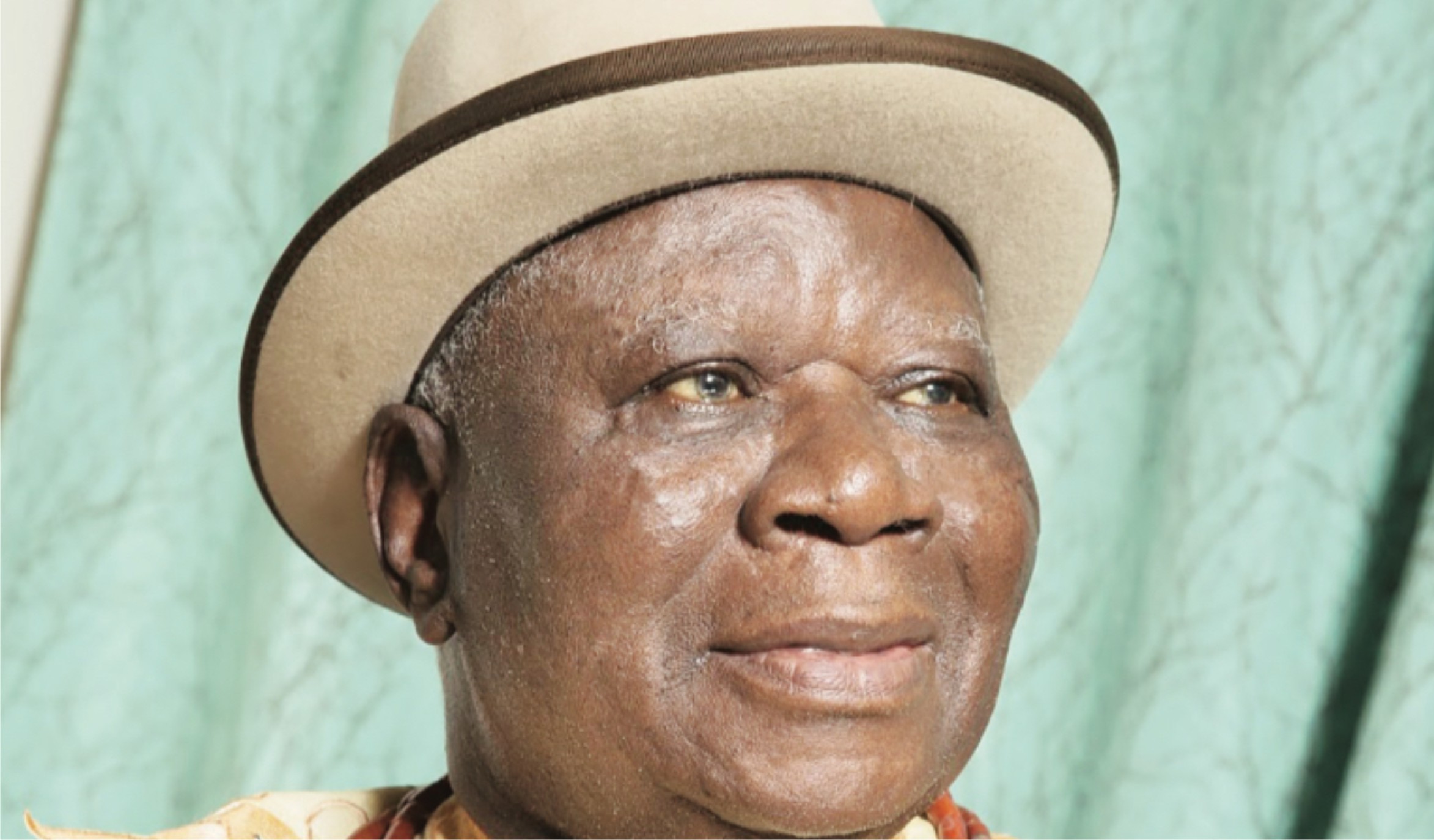
President Bola Tinubu has expressed sadness over the passing of former Federal Commissioner for Information and respected leader of the Pan-Niger Delta Forum, Chief Edwin Clark.
Tinubu’s condolence message was contained in a statement issued by the Special Adviser to the President on Information and Strategy, Bayo Onanuga, yesterday.
Tinubu said, “He led an illustrious life marked by dedicated service, at different times, to the nation and his community as a councillor, state and federal cabinet member.
“He was also a passionate advocate for resource control, economic and environmental justice in the Niger Delta.”
The statement reads: “On behalf of the federal government, the President extends his condolences to the Edwin Clark family, the Ijaw nation, the people of the Niger Delta, and the government of Delta State. President Tinubu mourns Chief Clark and describes his passing as a deeply sobering loss.
“Reflecting on the life of the late statesman, the President says Chief Clark was a towering figure whose influence was felt across Nigeria’s political firmament for nearly six decades. The President states that Chief Clark was a courageous leader who stood for what he believed in and was never afraid to stand alone in the face of injustice.
“Chief Clark spoke for the Niger Delta. He spoke for the nation. His views and interventions on national issues were distinct and patriotic. Pa Clark, a lawyer and educationist, believed in a united Nigeria, and until his last breath, he never stopped reaching out to people from different parts of the country to work together to preserve national unity based on justice and equity.
“As an astute politician, his political opponents never doubted the weight of his words, his confidence, and his conviction when he spoke. Indeed, a patriot has transitioned to the great beyond. History will remember him as a man who fought gallantly for the rights of the people of the Niger Delta, unity in diversity, and true federalism. I know many generations will remain proud of how his efforts contributed to national prosperity and stability.”
Tinubu prayed for divine comfort for Chief Clark’s family, friends, and all those affected by this significant loss.
Clark died on Monday at the age of 97.
His demise was announced by a representative of the family, Prof. C. C. Clark, in a statement Tuesday.
The statement read, “The Clark-Fuludu Bekederemo family of Kiagbodo Town, Delta State, wishes to announce the passing of Chief (Dr.) Sen. Edwin Kiagbodo Clark OFR, CON on Monday, 17th February 2025.
“The family appreciates your prayers at this time. Other details will be announced later by the family.”
Clark’s death is coming on the heels of the passing of Afenifere leader, Pa Ayo Adebanjo, who died at the age of 96 just a few days ago.
Both Clark and Adebanjo are known for contributing to the political development of the country.
Meanwhile, former President Muhammadu Buhari has also mourned Clark, describing him as an iconic statesman.
Buhari, in a condolence statement yesterday, said he death of Clark had caused deep sorrow in his heart and that of many in the country.
The statement read in part: “Late Chief Edwin Clark was a leader dedicated to reforms whose commitment to the development of his community and the nation would always be remembered. His death caused deep sorrow in his heart, and that of many, and his departure was a loss for the nation.
He is an iconic statesman”.
The former president maintained that the late Ijaw leader had left an indelible imprint on the nation and that in his passing, Nigeria had lost an iconic statesman and a distinguished leader.
He added that his commitment to the country’s unity would be respected by generations to come.
Buhari further urged the Clark family and fellow citizens in the Delta region of the country to uphold his numerous achievements.
Also, former Senate President, Bukola Saraki, has described the late PANDEF leader as a man of great conviction.
In a brief message posted via his verified X handle, yesterday, Saraki praised the elder statesman’s unwavering conviction, stating that Clark stood firm in his beliefs until the very end.
“Chief Edwin Kiagbodo Clark was a man of great conviction who stood firm for what he believed in—right to the very end,” Saraki wrote.
He added that Clark’s passionate advocacy for justice and equity would be deeply missed by Nigeria, the Ijaw nation, and the Niger Delta, for whom he was a tireless advocate.
“His death marks the end of an era—an era of principled leadership. He was one of the movers and shakers of the Second Republic Senate, in which my father served as the Leader of the Senate.
“On behalf of my family, I extend our heartfelt condolences to the Clark family, the entire Ijaw community, the people of the Niger Delta, and all Nigerians who mourn the loss of this extraordinary leader,” the former Senate President stated.
A towering figure in Nigerian politics and a relentless advocate for the rights of the Niger Delta, Clark was a lawyer, administrator, nationalist, and freedom fighter.
He served as Commissioner for Education in the Mid-Western Region from 1968 to 1971, and later as Commissioner for Finance and Establishment in the defunct Bendel State between 1972 and 1975.
At the federal level, he was appointed Commissioner for Information in 1975 and subsequently became a Senator from 1979 to 1983.
Beyond his political career, Clark was a leading voice for regional and national unity. He was also known for mediating peace among warring communities and politicians in the Niger Delta region.
Featured
We’re Genuinely Opening Up Kalabari Land For Development, Says Fubara
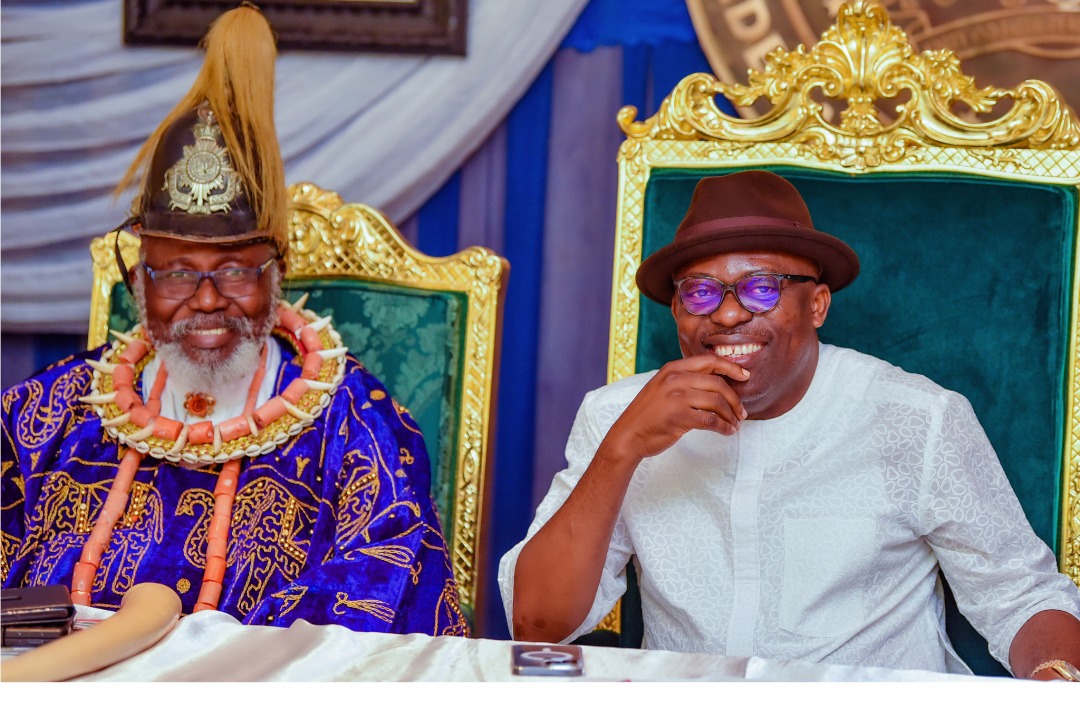
Rivers State Governor, Sir Siminalayi Fubara, has explained that his administration is courageously executing strategic projects that are opening up Kalabari land for unprecedented development and economic growth.
Governor Fubara made the explanation when he received on solidarity visit, a delegation of monarchs, political leaders, elders, women and youths of Kalabari Ethnic Nationality, led by the Amanyanabo of Abonnema, King Disreal Gbobo Bobmanuel, at Banquet Hall of Government House in Port Harcourt, last Tuesday.
The Governor stated that while previous administrations avoided executing the original plan for the Trans-Kalabari Road project due to cost implications, he has ventured into it, and driving the process steadily in order to link Kalabari land to the State capital.
Governor said: “Somebody said, if I don’t do it for my people, who will do it for them. We ventured into the Trans-Kalabari Road, we didn’t close our eyes. Our eyes were open because we knew what we were entering into.
“It is not a joke; it is a big project. We believe that at the end of that project, the level of development that it will attract to that line of entry into Kalabari will be very unprecedented.
“Issues of insecurity from our waterways will be reduced because, at that point we are doing road, people won’t be using the river anymore. The cost of living will also be cheaper.”
Governor Fubara further asserted: “So, you understand that your interest, your safety, your development is key to us. It is not about the number of years that we are going to be here; what is important to this government is the impact we make while we are here.”
Responding to their unanimous endorsement to see him run for a second term in office, Governor Fubara said power belongs to God, and He gives it to whoever finds favour in His sight.
Governor Fubara, however, stated that if God so approved of it, even those who are regrouping against him will not see the path God will lead him because they cannot scuttle such plan.
He added, “Power belongs to God. So, you see, I like believing that we don’t have any problem. When we get to the bridge, we will cross it. If we can break the bridge, Moses will come and create a road for us. So, you don’t need to worry.
“We will cross the bridge. We will cross it in a way that our enemies will be struggling; they won’t see where we are passing. So, don’t worry.”
Governor Fubara acknowledged the immense support to him by Rivers Ijaw, and urged particularly the Kalabari people to stand with honour in their unalloyed support for his administration, which will neither abandon them nor fail to deliver quality projects to the people.
Governor Fubara also responded to their requests and informed them that his administration has completed the Emohua/Tema Junction Road project, and ready to inaugurate the Degema Zonal Hospital in May.
He said the Health Commissioner has been directed to assess the state of the Abonnema General Hospital for immediate rehabilitation, while promising to address the issues of shore protection in the area.
Governor Fubara assured that with the Abonnema sandfilling works completed, the phase two will commence that will include Buguma, explaining that the Commissioner for Works has been tasked to do the assessment immediately.
On the request for the establishment of tertiary institution in the area, Governor Fubara said his administration is already inaudated with memos asking that the off-campus of Rivers State University established previously be revised because it has become difficult to sustain them, but quickly added that the government will consider the establishment of a viable institution that will provide technical and entrepreneurial skills to the people in a sustained manner.
Reading the address of Kalabari Ethnic Nationality, Chief Pawariso Samuel Horsfall, announced that the entire Kalabari people have unanimously endorsed Governor Fubara for a second term, and vowed to mobilise Rivers people to ensure electoral victory for him in the 2027 gubernatorial election.
In his speech, the leader of the delegation and Amanyanabo of Abonnema, King Disreal Gbobo Bobmanuel, expressed the profound thanks of the Kalabari people to Governor Fubara for his genuine love for them, as evidenced in the types and quality of development projects delivered or being executed in the area.


